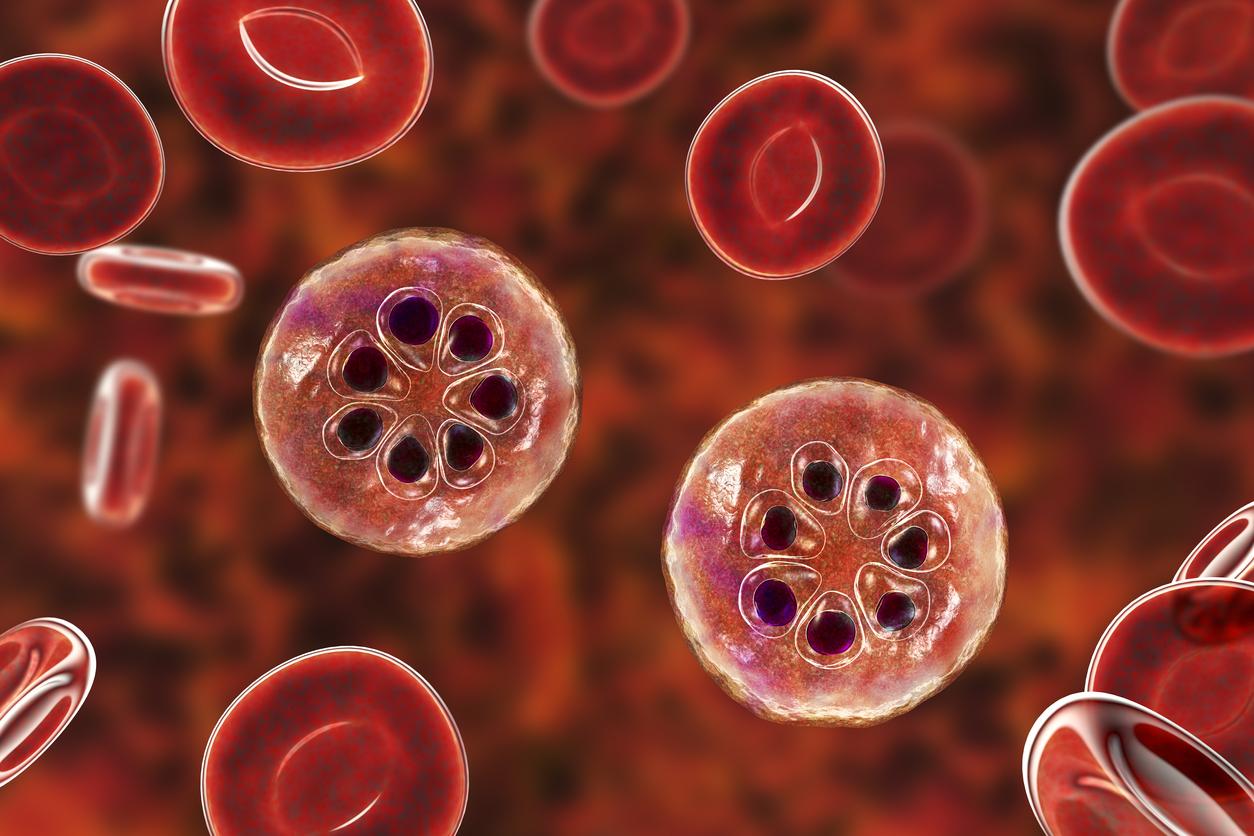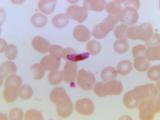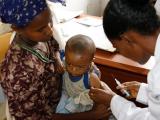Yesterday the New England Journal of Medicine published the results of a phase 2 trial showing 88% efficacy for a monoclonal antibody against malaria.
The antibody infusion, CIS43LS, was protective against Plasmodium falciparum infection over a 6-month malaria season in Mali without evident safety concerns, with participants performing blood-smear tests every 2 weeks during the phase 2 trial.
The single infusion of antibodies was assessed in two parts. In Part A, safety was assessed at three escalating dose levels, the authors said. In Part B, participants were randomly assigned (in a 1:1:1 ratio) to receive 10 milligrams (mg) of CIS43LS per kilogram of body weight, 40 mg of CIS43LS per kilogram, or placebo.
A total of 330 healthy adults (ages 18 to 55) participated in Part B, with 110 assigned to each group. P falciparum infections were detected on blood-smear examination in 39 participants (35.5%) who received 10 mg of CIS43LS per kilogram, 20 (18.2%) who received 40 mg of CIS43LS per kilogram, and 86 (78.2%) in the placebo group. The infusions lasted 30 minutes.
All the participants received a standard treatment course of artemether-lumefantrine 7 to 21 days before administration of the antibody infusion to clear possible P falciparum blood-stage infection.
After 24 weeks, the efficacy of 40 mg of CIS43LS per kilogram compared with placebo was 88.2% (adjusted 95% confidence interval [CI], 79.3 to 93.3; P < 0.001), and the efficacy of 10 mg of CIS43LS per kilogram compared with placebo was 75.0% (adjusted 95% CI, 61.0 to 84.0; P < 0.001).
"These data provide proof of concept that a monoclonal antibody with an extended half-life can protect against P. falciparum infection during intense transmission for a defined time period," the study authors concluded.
No major safety concerns were reported, but the risk of moderate headache was 3.3 times as high with 40 mg of CIS43LS per kilogram as with placebo.
Malaria progressed has stalled
According to the authors there are 200 million to 400 million cases of malaria resulting in more than 500,000 deaths each year, the majority of which occur in African children.
In an editorial accompanying the study, Umberto D’Alessandro, MD, PhD, from the London School of Hygiene and Tropical Medicine, said significant progress against malaria has stalled since 2014.
"In 2020, 29 countries accounted for 96% of malaria cases globally, and 6 African countries accounted for approximately 55% of all cases globally," he wrote.
D’Alessandro said the findings were encouraging, but future studies need to assess the severity of clinical malaria in healthy volunteers who, like most adults in the study region, had built an immunity to the disease after years of infection.
Despite the encouraging results, D'Allessandro cautioned that delivery of the monoclonal antibody remains problematic. "It is difficult to conceive the large-scale implementation of an intervention administered as a single intravenous infusion of 100 ml over a period of 30 minutes. Subcutaneous administration would be easier to implement, but the volume that can be injected is limited," he wrote.






















